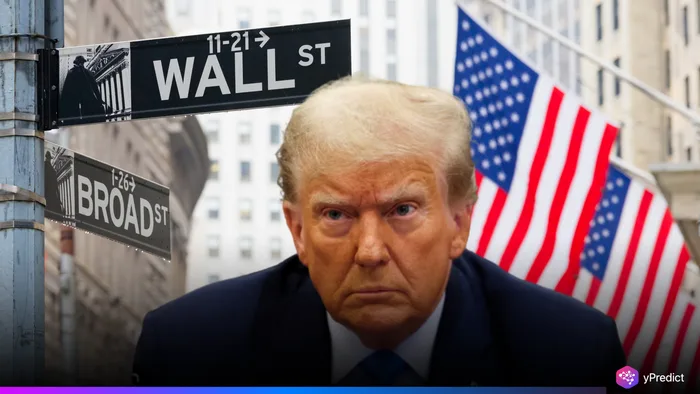
Markets have emerged as an unforeseen partner in President Donald Trump’s mounting trade war. As tariffs have increased and relations with the rest of the world have turned decidedly hostile, investors still seem remarkably resolute, thus providing support for Trump’s tough line on trade. American stocks, in particular, have remained robust, even amidst uncertainty, suggesting that Wall Street still wants to believe in the long-term payoff and efficacy of Trump’s trade war.
Markets have acknowledged Trump’s rhetoric. He has constantly pointed to the strength of the markets around the world as evidence that his policies and actions on China and trade are the right ones. He has ramped up rhetoric from the market-based premise that he can, if he has the market confident of his strength, take actions that threaten to upend the norms of the free trade system while operating under the assumption that America will clearly and forever wield more economic power than any other world player.
Markets Appear Comfortable with Tariff Risks
U.S. markets have diminished some of the anxieties experienced at the onset of the trade war. Market participants appear convinced that the Trump administration’s actions and threats of new tariffs, while aggressive, will not derail the economy. That assumption has given the market a cushion against any costs from tariffs or responses from retaliatory tariffs.
For example, the S&P 500 barely declined or bounced back after new tariffs were announced. Investors are focused on strong domestic data, low unemployment, and the end of a relatively strong earnings season. After everything, it is clear that Wall Street has confidence that the economy can withstand the storm created by Trump’s trade war.
Trump’s Messaging Leverages Market Confidence
Trump has successfully leveraged the stock market for political purposes. He frequently refers to its strength in speeches and social media posts, suggesting that it is evidence that his trade policy is working. This story creates public support and permits the White House to brush off critics’ warnings about long-term damage.
By aligning the “success” of his trade agenda with the Dow Jones or the Nasdaq’s performance, Trump simplifies a complex issue for everyday Americans. If markets are up, he claims victory. This strategy reinforces the perception that the Trump trade war is a calculated risk worth taking.
Business Leaders Stay Cautious Despite Market Support
While investors may be throwing their weight behind Trump for now, business leaders are still on guard. Many CEOs and economists are indicating that continuing uncertainty could theoretically disrupt supply chains, raise costs, and slow investment. However, that concern hasn’t yet caused a major pull-back from the markets.
Businesses are taking a “wait and see approach.” They are adjusting their operations, sourcing from countries other than China, and trying other trade routes. In the meantime, the market is confident in the short term but the long-term implications of unstable trade relations keep concerns mounting.
What Happens If Market Sentiment Shifts?
The Trump administration’s confidence hinges heavily on market behavior. If stocks fall sharply or if investors start fleeing risky assets, the White House could face real pressure to ease trade tensions. Trump understands this dynamic and likely watches the market as closely as any economic advisor.
A major correction could change the political narrative. Until then, market confidence gives Trump political cover to continue his trade campaign. However, any shift in sentiment could expose the fragile foundation of this approach.
Final Thoughts: A Market-Driven Mandate for Trade
For now, Trump has managed to turn market strength into political momentum. His trade policy may be controversial globally, but domestic investors are signaling their approval. That approval has emboldened him to escalate trade battles with confidence.
But markets are fickle. If confidence disappears, the very support that bolsters his position could evaporate just as quickly. The challenge for Trump is to continue to cope with the tradeoffs between risk and reward in an interdependent world.







